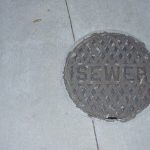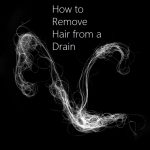Lead in water is a health issue with serious consequences for those affected by it. Lead gets into our water from old corroded pipes and plumbing fixtures. Water is a highly effective solvent, and lead can easily leach into the water, and it will be undetectable without a water test. Many cities are adopting water treatment plans to deal with lead contamination in our water supplies. Despite this, many people are taking more responsibility for their own water by installing water filtration systems to remove lead. In this article, we will take a look at
four plumbing fixes that will reduce the levels of lead in your water supply.
- Replacing Lead Soldered Pipes
Older homes may still have plumbing pipes that have been soldered with a lead based solder. After 1970, all new homes and remodels used copper pipes and this plumbing metal requires solder to create a watertight seal. There are also other types of metallic pipes and soldering solutions that contain contaminants that should not be ingested in drinking water. Newer plumbing pipes are made from non metal materials, and they are not classed as a contaminant. Of course, replacing all the plumbing pipes and fixtures in your home is an expensive proposition. But, it should be noted that these pipes will last longer, and they will be far safer for your family.
- Replacing Brass Fixtures
Brass was once a popular material for plumbing, it even became sought after in recent years for its antique aesthetic appeal, but it can leach lead into your water. The water travels to your faucets through the plumbing pipes, and it can pick up contaminants along the way. Even if you replace your pipes, but you still have brass fixtures and faucets you could be ingested water laced with lead. Older antique style brass fixtures contain lead, and they can still affect the water passing through them. A better alternative would be a modern stainless steel faucet or fixture, and there are antique styles available for those that want to maintain a certain old world appeal.
- Install a Water Filtration System
Using filtered water is a great way to ensure that you have removed lead and other contaminants from your water supply. There are many models to choose from, a simple under the sink system will supply cleaned water to your kitchen faucet for drinking, cleaning food and cooking purposes. A more extensive option would be a whole house water filtration system that will supply cleaned water to every faucet, tub and shower head in your home. Get some expert advice on a system to suit your needs and remember to change the filters regularly.
- Clean and Change the Aerators
A faucet aerator is a great way to conserve water because it will slow down the flow. The aerator will add some air to the water, and this can soften the stream to a gentle shower. The screen inside the aerator can become clogged with debris over time, and this can include tiny pieces of corroded lead pipe. This material will leach into the water that passes through it, so it’s a good idea to take the aerators apart and clean them on a regular basis.
By Giovanni Longo President Flood Brothers Plumbing
Giovanni Longo is a 3rd generation master plumber who has been practicing his craft and trade in the greater Los Angeles area for well over a decade and a half. A plumbing and hydraulics-engineering innovator, Giovanni’s particular world-class expertise focuses on dealing with challenging sewer system designs as well as resolving complex commercial and residential draining issues. As a certified Flood Mitigation expert, he is also well versed in a wide variety of water damage and remediation solution.





